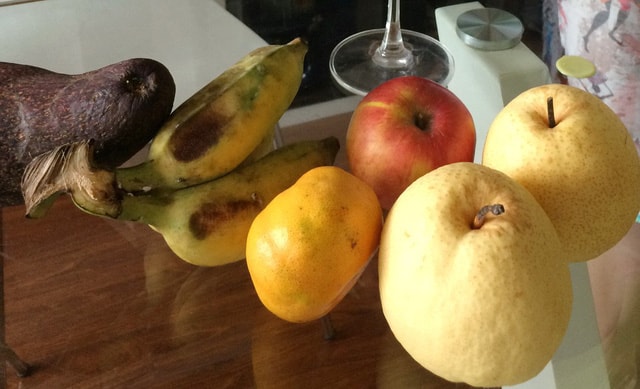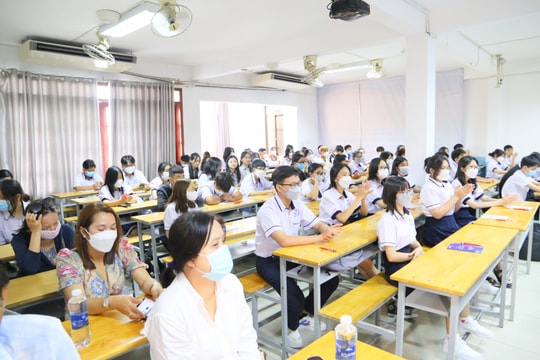Golden tips to improve health during exam season for students
Early next week, the most important exam of the year - the national high school exam - will take place. Before the exam day, doctors advise candidates to pay attention to sleep and "take in" enough nutrients to ensure good health.
 |
| Students at a high school in Ho Chi Minh City are studying hard to prepare for the 2018 exam. Photo: Duyen Phan |
1.Don't stay up late
Doctor Le Thi Hai, former director of the Nutrition Center, National Institute of Nutrition, said that due to the pressure of studying, many parents and children think that the more extra classes they can take, the better, and many children always stay up very late to study.
If you stay up late continuously, lack sleep, or don't get enough sleep, your brain will be constantly stimulated to work, resulting in ineffective studying and working.
Doctors advise that when you feel tired and sleepy, it means your brain wants to rest. It is best for you to leave your desk for 30 minutes to take a nap and then continue studying, or if it is too late, go to bed immediately, avoid overworking your brain, the next day you will always be tired, less alert, studying and doing homework will not be effective.
2.Get 6-8 hours of sleep
Dr. Le Bach Mai, former deputy director of the National Institute of Nutrition, recommends that students should sleep 6-8 hours a day before exams, sleep before 11pm and wake up early to study. This is the time when the brain is clear and studying is most effective.
3.Short nap
Children should take time to take a short nap, it also has a very good restorative effect on the brain.
4.Exercise for... the brain
Doctors recommend that students should not study continuously, sitting for hours at the desk, but should take breaks. During breaks, students can do some light exercises to help blood circulate better and be more alert.
5.Do not eat strange food
According to medical experts, the time near the exam date is an important time. In addition to eating enough meals, enough nutrients, and eating soft, easy-to-digest foods, candidates should avoid strange, difficult-to-digest foods and street foods because they can lead to the risk of digestive disorders, causing trouble for students during exam season.
6.Don't skip meals
Even if you are anxious, you should not skip meals, especially breakfast, but you should not eat too much either.
7.Drink enough water
The stress of exams can be dehydrating. Research shows that students who drank water during their exams scored 10% higher than those who did not.
8.Protein supplement
Currently, foods considered good for the brain include eggs (you can eat one every morning or as a snack every afternoon, but should not eat them at night), tofu, nuts such as green beans, black beans, fish...
9.Increase vegetable intake
Add foods rich in vitamins and minerals such as vegetables, fresh fruits, milk... Use more dark green leafy vegetables (malabar spinach, kale, spinach), yellow and red fruits, pumpkin...
10.Going out when your mind is too stressed
When you study too much, feel tired and stressed, take an hour to relax, such as listening to music, going for a walk somewhere... To help reduce stress, divide your study into short study sessions. You can jog, swim, cycle, or even just walk to a nearby convenience store for a few minutes to relax your mind.


.jpg)






